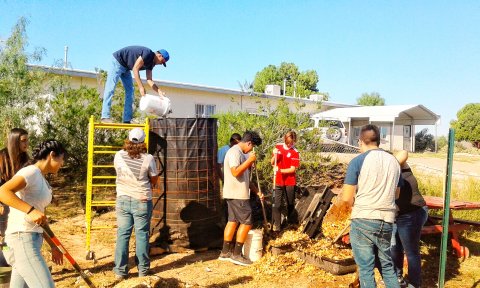Teaching Las Cruces Students to Grow Food in a Way That Can Reverse Climate Change
Sometimes the enormity of climate change can seem overwhelming. What can one person, or even one nation, do on their own to slow and reverse climate change?
Chihuahuan Desert Charities has found a route. We are teaching Las Cruces students sustainable food production and consumption practices that can help mitigate and even reverse impacts of climate change.




